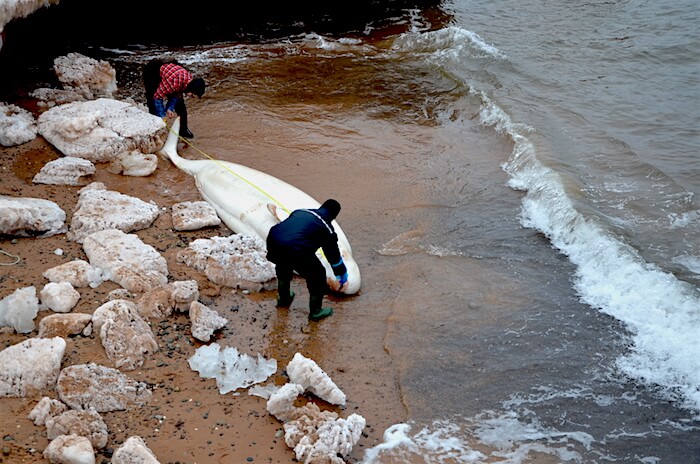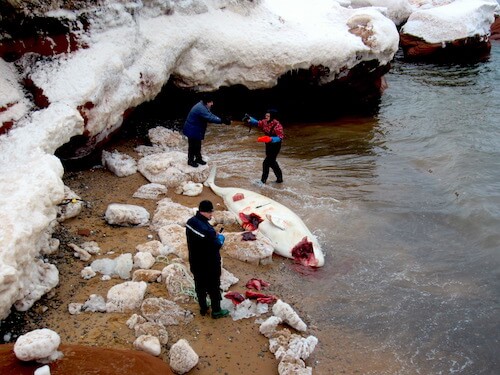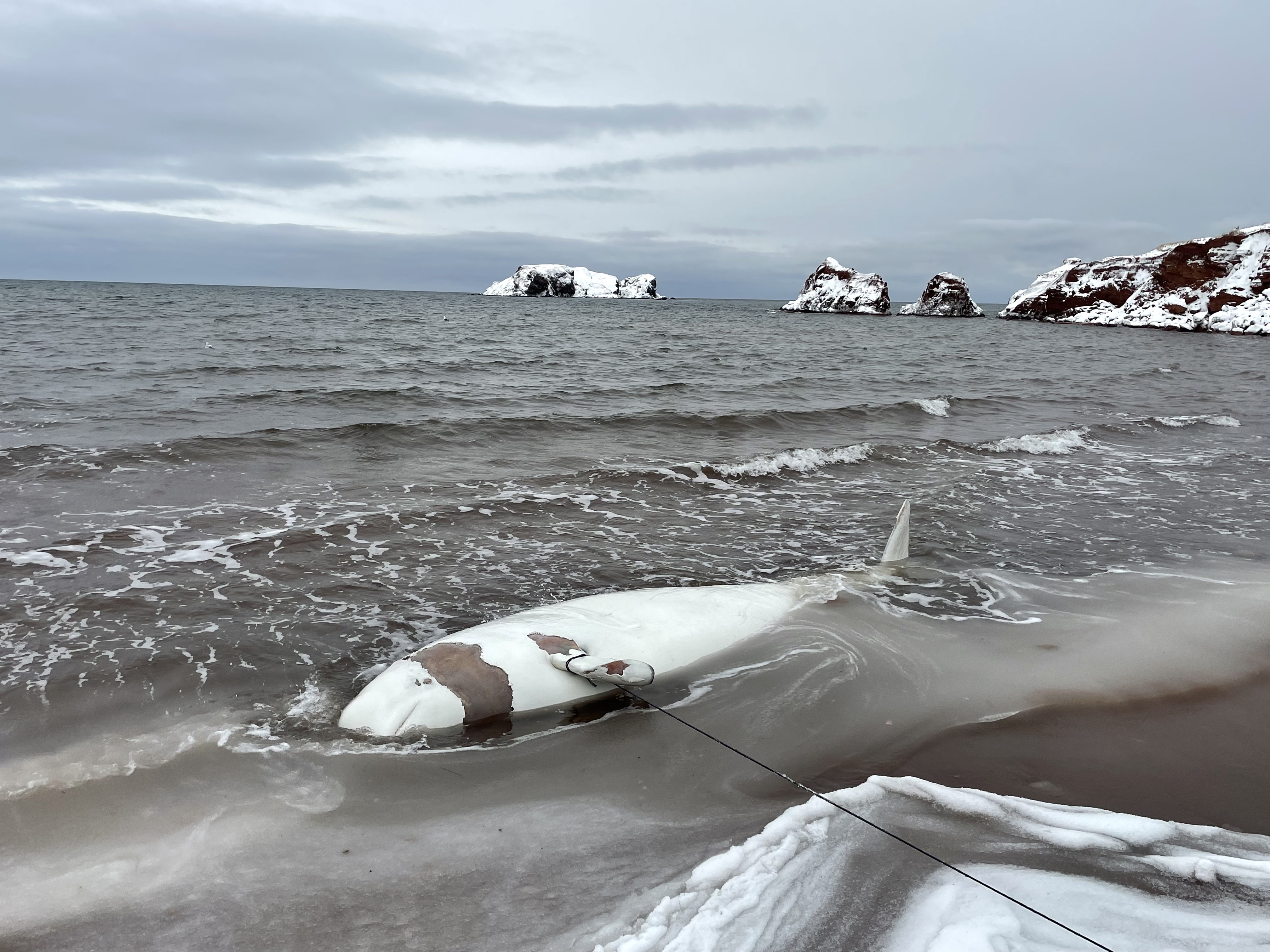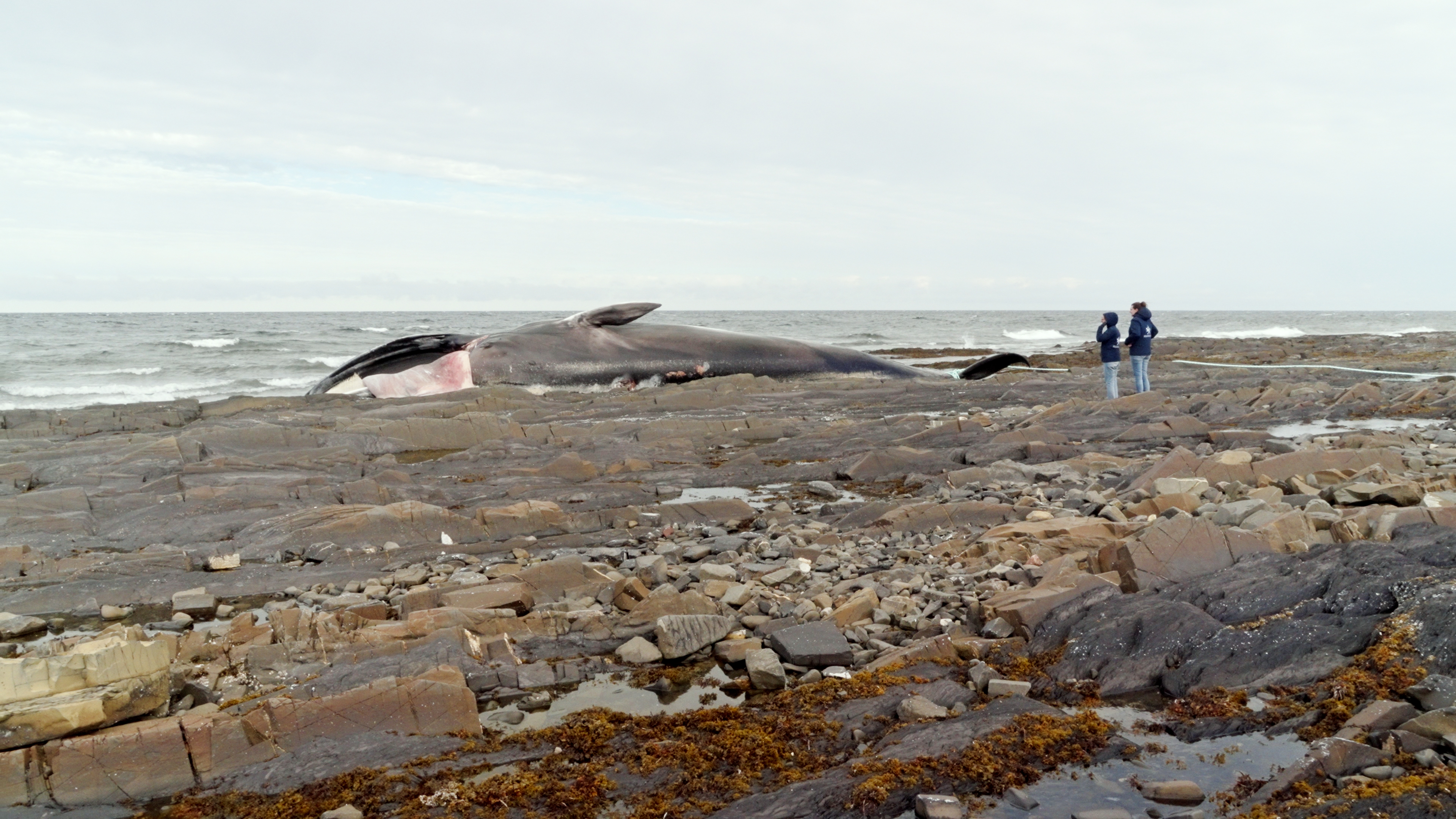On Saturday, a beluga washed up onto Fatima beach in the Magdalen Islands. The carcass is being eyed by local residents, who would like to recover its bones. However, Section 32 of the Species at Risk Act (SARA) stipulates that it is prohibited to possess a part or product of a species listed as extirpated, endangered or threatened.
This is the second beluga carcass reported to Marine Mammal Emergencies in less than a week. A Fatima resident made the discovery on the evening of April 1, reassuring the call centre that this was no “April Fool’s” hoax. The other carcass was discovered in the Gaspé region on March 29.
Dedicated volunteers and citizens
After the photos were analyzed by beluga specialists, it was confirmed that the carcass, a 4.4 m long male, was not sufficiently fresh to undergo a complete necropsy. The bloated body and missing skin in places were testimony to its advanced state of decomposition. The Quebec Marine Mammal Emergency Response Network then appealed to its volunteers and was also able to count on the generous contribution of the individual who discovered the whale to recover samples for the research project on the health of St. Lawrence belugas. Pieces of skin, fat and muscle were collected near the animal’s dorsal crest, as well as a sample of the liver and lower jaw for analysis of the teeth in order to determine its age.
Is it permitted to recover other parts of this carcass?
The beluga, like the North Atlantic right whale and the blue whale, is considered a species at risk. It is therefore forbidden to take any part of a carcass, be it a bone, tooth or baleen, from an animal belonging to any of these species. In fact, under SARA, it is prohibited to kill, possess, collect, buy, sell or trade individuals (or parts thereof) of an extirpated, endangered or threatened species listed in Schedule 1 of SARA.
SARA is designed to prevent wildlife species from becoming extinct and provide for the recovery of species that are endangered or threatened as a result of human activity. The Act also aims to promote the management of species of special concern to prevent them from becoming endangered or threatened.
Under SARA, permits may be issued to authorize certain activities that would otherwise violate these prohibitions. A permit may be issued under SARA only for:
- Scientific research on species conservation conducted by competent individuals;
- An activity that benefits the species or is necessary to increase the survival of the species in the wild; or
- An activity that affects the species only incidentally.
If you intend to undertake activities involving aquatic species at risk, an application must be sent to Fisheries and Oceans Canada. Applications for licences will be handled on a case-by-case basis, and the decision on whether or not to authorize the activity will take into account, amongst other things, the factors set out above.
The beluga carcass was on the verge of being washed out by the tide on Monday morning. Please report any other sightings of this carcass to 1-877-7baleine.






